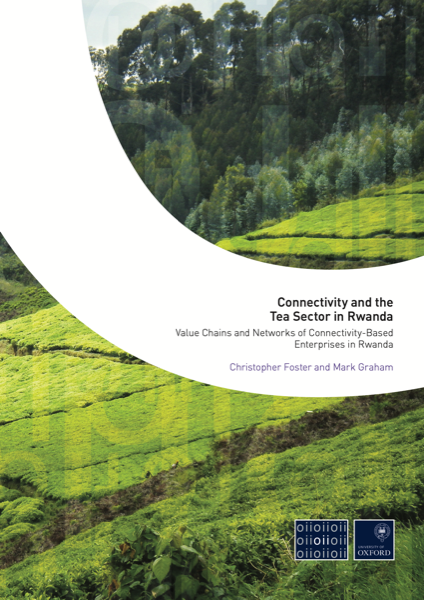
Dr Christopher Foster
Former Researcher
Chris Foster's research focus is on technologies and innovation in developing and emerging markets, with a particular interest on how ICTs can support development of low income groups.

East Africa was the world’s last major region without submarine fibre-optic broadband internet access, and until the summer of 2009 had been forced to rely on slow and costly satellite connections for access. However, the region has recently been connected via fibre-optic cable, in theory, allowing much greater speeds at much lower prices. This rapid transformation in the region’s connectivity has prompted politicians, journalists, academics, and citizens to speak of an ICT-fuelled economic revolution happening on the continent.
This report finds that digital connectivity is increasingly important to the tea industry in Rwanda. The benefits of changing connectivity are generally being felt upstream in the Rwandan tea industry (for instance, by enabling higher volumes of production and management for larger tea firms). The challenge is to ensure that improved benefits are felt further down the production chain for farmers and co-operatives, and that Rwandan firms are not marginalised in global production.